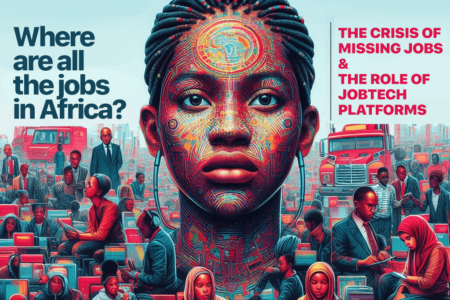South Africa and Nigeria are the largest economies in Africa. And when it comes to payments, the two might seem complete opposites at first glance.
South Africa has the most developed financial services sector on the continent with 80% of its citizens owning a bank account and 60% owning cards. In Nigeria, on the other hand, more than half of the population is considered unbanked, with card penetration being far less.
These sweeping differences aside, these two African powerhouses have one thing in common: the rapid rise of alternative payment methods (APMs). This shared trend points to the future direction of payments across Africa.
What cards don’t solve
Cards will retain a significant share of spend on digital transactions for many reasons including widespread acceptance, strong security features, attractive rewards programs, and the familiar transaction experience they offer to consumers globally. However, this share is likely to decrease due to both changing consumer preferences and regulatory shifts — not just in Africa but worldwide.
In the case of both Nigeria and South Africa, cards already present major challenges, pushing consumers to explore and gradually adopt alternative payment methods.
In South Africa, consumers are facing high rates of card fraud which reached ZAR 1.2 billion in 2021. According to the country’s Ombudsman for Banking Services, the techniques used by financial criminals are growing in sophistication with methods like near-field communication (NFC) fraud compromising contactless payments. The impact of card fraud is especially disruptive considering the fact that nearly 60% of the country’s population use debit cards, according to the World Bank. Given the high risk of fraud, cards are gradually waning in popularity for online transactions.
More secure options like bank transfers and instant electronic fund transfers (EFTs), which combined make up an estimated 60% of online payments, outpace cards which account for a 43% share. Local payments companies which facilitate instant EFTs, like Ozow, are growing their market share in South Africa by offering additional security to consumers by requiring the authentication and approval of each transaction. And the risk of chargeback fraud is also dramatically reduced with instant EFTs as it’s impossible for malicious actors to initiate payments with just the bank credential alone, unlike card payments.
Beyond fraud, card use can be throttled by regulation. In Nigeria, the estimated 41.3 million people who own debit cards are increasingly looking for alternatives due to issues over their ability to use them to make international payments.
In 2022, cards issued by banks became effectively unusable internationally after the Central Bank of Nigeria limited monthly USD-denominated transactions to $20. Fintechs swiftly filled the vacuum created by these restrictions by offering virtual dollar cards. While this did temporarily solve the issue for consumers, these alternatives also created a new avenue for fraud, as seen by the $1.2 billion chargeback fraud attempt experienced by virtual & physical debit card issuing platform Union54. After the Central Bank floated the naira this summer which eased international spend limits, fintechs with virtual card offerings lost their edge.
Then there is the rise of agent networks, with companies like Paga counting 19 million users, and OPay posting 40 million users in Nigeria. Once considered hyperlocal solutions, mobile wallet operators are evolving into secure platforms for online payments. Depending on their user numbers and share of wallet by vertical, they can become an attractive payment partner for global merchants. Their ability to allow Nigerian consumers to pay for recurring monthly subscriptions from global companies (like Spotify) only increases their utility and value to the end-user. For example, Paga’s partnership with Amazon Prime Video is the first case of a global merchant accepting local payments natively, making a popular service accessible to Nigerians.
Booming digital economy to spur APMs and vice versa
The growth of APMs in South Africa and Nigeria go beyond the drawbacks of cards. Hyper local payments are developing in tandem with the booming digital economy, driven by tech savvy Millennial and Gen Z populations.
Africa has the fastest-growing digital economy in the world with an 8.2% CAGR of digital buyers by 2025, surpassing Asia, Europe, and North America. While Africa’s digital economy is starting from a low base – only 12% of African consumers made an online purchase in 2021 – the room for growth is nonetheless remarkable, given the continent’s population of 1.2 billion people who are the youngest in the world.
In contrast to other emerging markets, the growth of digital payments is driving Africa’s digital economy by enabling consumers to pay for online goods and services. With growing digital and financial inclusion, niche digital verticals are seeing their own important payment channels.
An example of such a niche is gaming, which is projected to reach over $1 billion in revenues in sub-Saharan Africa by 2024. Nigeria and South Africa are the neck and neck undisputed leaders, generating $249.4 million and $236.1 million in annual game sales respectively. Given the multitude of gaming platforms and devices, digital game publishers are getting creative in order to reach as many Nigerian and South African consumers as possible. Enter alternative payments methods – which are both diverse and hyperlocal.
In South Africa, physical gaming vouchers for Xbox 360 and PlayStation can be found in pharmacies like Dis-Chem and supermarkets like Checkers, which is unique to Africa’s largest industrial economy. For digital game publishers, these vouchers are a key payment method. What this suggests is that many South African gamers – many of whom are likely to own a bank account and/or bank card – prefer to buy vouchers offline for digital gaming credits, likely out of a reluctance to enter their personal details online due to the risk of fraud and other concerns.
Meanwhile, in Nigeria, Codashop, a global seller of game and app gift cards, accepts local currency payments with Paga as one of its default payment methods. Through Codashop, the likes of Bigo Live, a TikTok-like live streaming service that is the second most downloaded social app in Nigeria, have a direct means of selling to consumers who might not have a traditional bank card.
What the future holds
While there are many significant differences between payments in South Africa and Nigeria, the rapid rise of APMs in both countries points to one thing: these methods will power Africa’s digital economy.
What we’re experiencing today in both markets, including the developments above and the growing adoption of Open Banking solutions, are important steps towards integration and interoperability. At the same time, we’re seeing positive signs from regulators and banks across the continent relative to the adoption of new digital payment methods — from Morocco kicking off instant bank transfers to the launch of a national switch pilot in Guinea.
According to a McKinsey report, 70% of all online transactions in Africa are expected to be done with alternative payment methods by 2025. While this might seem like an optimistic projection, we’re already seeing strides towards it.





Share: